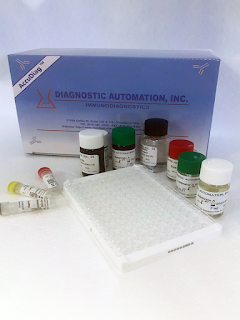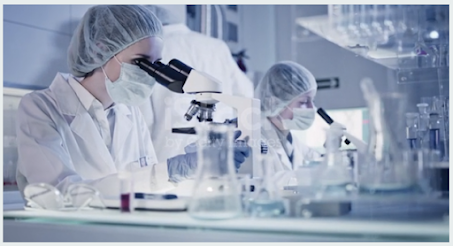How Thyroid ELISAs Are Shaping the Future of Diagnostic Serology?
In the realm of diagnostic serology, precision, accuracy, and rapid results are paramount. As the global healthcare landscape evolves, the need for advanced testing methods has never been greater. Thyroid disorders, affecting millions worldwide, require highly accurate diagnostic tools for timely treatment and management. Enzyme-linked immunosorbent assays (ELISAs) for thyroid testing are emerging as one of the most transformative solutions in this space. Thyroid ELISAs are revolutionizing the diagnostic serology sector by offering unparalleled sensitivity and specificity in detecting thyroid-related disorders. In this article, we explore how these assays are shaping the future of diagnostic testing and their significant impact on healthcare.
The Rising Need for Accurate Thyroid Diagnostics
Thyroid disorders like hypothyroidism, hyperthyroidism, and autoimmune thyroid diseases (like Hashimoto's thyroiditis and Graves' disease) are common globally. Yet, they often go undiagnosed or misdiagnosed due to a lack of effective screening methods. Early detection of these conditions is crucial, as improper or delayed treatment leads to severe health complications, including heart disease, infertility, and neurological disorders.
Diagnostic serology, particularly in thyroid testing, has evolved to address this pressing need for early detection. Traditional diagnostic methods, while effective, often fall short in terms of speed, specificity, and the ability to handle large patient volumes. This gap has fueled the demand for next-generation diagnostic tools that are reliable, cost-effective, and capable of delivering quick results. This is where thyroid ELISAs are proving to be a game-changer.
What Are Thyroid ELISAs?
Thyroid ELISAs are immunoassays that use antibodies to detect and quantify thyroid-related biomarkers in the blood. They work by capturing specific thyroid antigens, such as thyroid-stimulating hormone (TSH), free thyroxine (FT4), and thyroid peroxidase antibodies (TPOAb), which are indicative of thyroid function and autoimmune thyroid disease. These assays are highly sensitive and have the ability to detect even minute concentrations of these biomarkers, ensuring accurate diagnosis.
Unlike traditional methods, ELISAs use enzyme-linked reactions that produce measurable signals, allowing for rapid and reliable results. This makes thyroid ELISAs ideal for both clinical laboratories and point-of-care settings, providing quick answers that can inform treatment decisions in real time.
The Impact of Thyroid ELISAs on Diagnostic Serology
Enhanced Sensitivity and Accuracy
Thyroid ELISAs have set a new standard for sensitivity and accuracy in diagnostic serology. By detecting thyroid hormones and antibodies with exceptional precision, these assays minimize the chances of false positives or false negatives, which are critical in thyroid disease diagnosis. For instance, detecting even low levels of thyroid-stimulating hormone (TSH) or thyroid antibodies ensures that conditions like hypothyroidism and autoimmune thyroid diseases are accurately diagnosed, even in the earliest stages.
Improved accuracy from thyroid ELISAs leads to quicker, correct diagnoses, reducing unnecessary repeat tests and misdiagnoses, ultimately enhancing patient care and easing the strain on healthcare resources. It empowers healthcare providers to develop personalized treatment plans quickly and effectively.
Rapid and Cost-Effective Testing
Thyroid ELISAs offer rapid turnaround times compared to traditional thyroid function tests, providing results within hours rather than days. This is particularly valuable in urgent clinical settings where time is of the essence. ELISA testing is cost-effective, allowing more healthcare facilities, including those in underserved areas, to access reliable thyroid diagnostics for better patient care.
As the healthcare industry continues to shift toward cost-effective solutions, thyroid ELISAs provide a viable alternative to more expensive and time-consuming diagnostic methods, allowing for quicker diagnosis and early intervention at a lower cost.
Versatility in Diagnosis
One of the greatest advantages of thyroid ELISAs is their versatility. These assays are capable of detecting a wide array of thyroid-related biomarkers, which means they can be used to diagnose various thyroid conditions, including autoimmune thyroid diseases, thyroid cancers, and endocrine disorders. Furthermore, they are valuable in assessing thyroid function during pregnancy, as thyroid health is crucial for both maternal and fetal well-being.
Thyroid ELISAs also have significant implications for monitoring the progress of treatment, particularly for patients with chronic thyroid conditions. By regularly measuring thyroid biomarkers, healthcare providers can adjust medications as needed, ensuring optimal patient outcomes.
Simplified Workflow and Automation
Thyroid ELISAs are compatible with high-throughput automated platforms, enabling laboratories to process large volumes of tests efficiently. This streamlined workflow reduces the chances of human error, increases throughput, and enhances overall laboratory productivity. In high-demand environments such as hospitals and diagnostic centers, automation is a critical factor in maintaining quality while managing patient loads.
The Future of Thyroid ELISAs in Diagnostic Serology
The future of diagnostic serology, particularly in thyroid testing, is undeniably tied to the continued advancement and integration of thyroid ELISAs. As technology evolves, these assays are expected to become even more precise, with improved capabilities for detecting new biomarkers and enhancing diagnostic workflows. Innovations in ELISA technology, such as the incorporation of microfluidics and lab-on-a-chip technologies, could further enhance the speed and ease of thyroid diagnostics.
Additionally, the rise of personalized medicine presents new opportunities for thyroid ELISAs. As healthcare providers increasingly focus on individual patient needs, ELISAs can be used to tailor treatments based on specific thyroid conditions, ensuring more targeted and effective therapies. Moreover, as public health initiatives continue to emphasize early detection and prevention, thyroid ELISAs are likely to become an integral part of routine screening programs, further solidifying their role in the future of diagnostic serology.
Conclusion
Thyroid ELISAs are at the forefront of transforming diagnostic serology by providing highly accurate, rapid, and cost-effective solutions for thyroid disease detection. Their enhanced sensitivity, versatility, and ability to streamline testing processes have made them invaluable tools for healthcare professionals worldwide.
As healthcare evolves, thyroid ELISAs will enhance the precision and efficiency of thyroid diagnostics, playing an important role a crucial role in improving early detection and treatment outcomes. By addressing the pressing need for reliable and timely thyroid testing, these assays are shaping the future of diagnostic serology and improving patient outcomes on a global scale.



Comments
Post a Comment